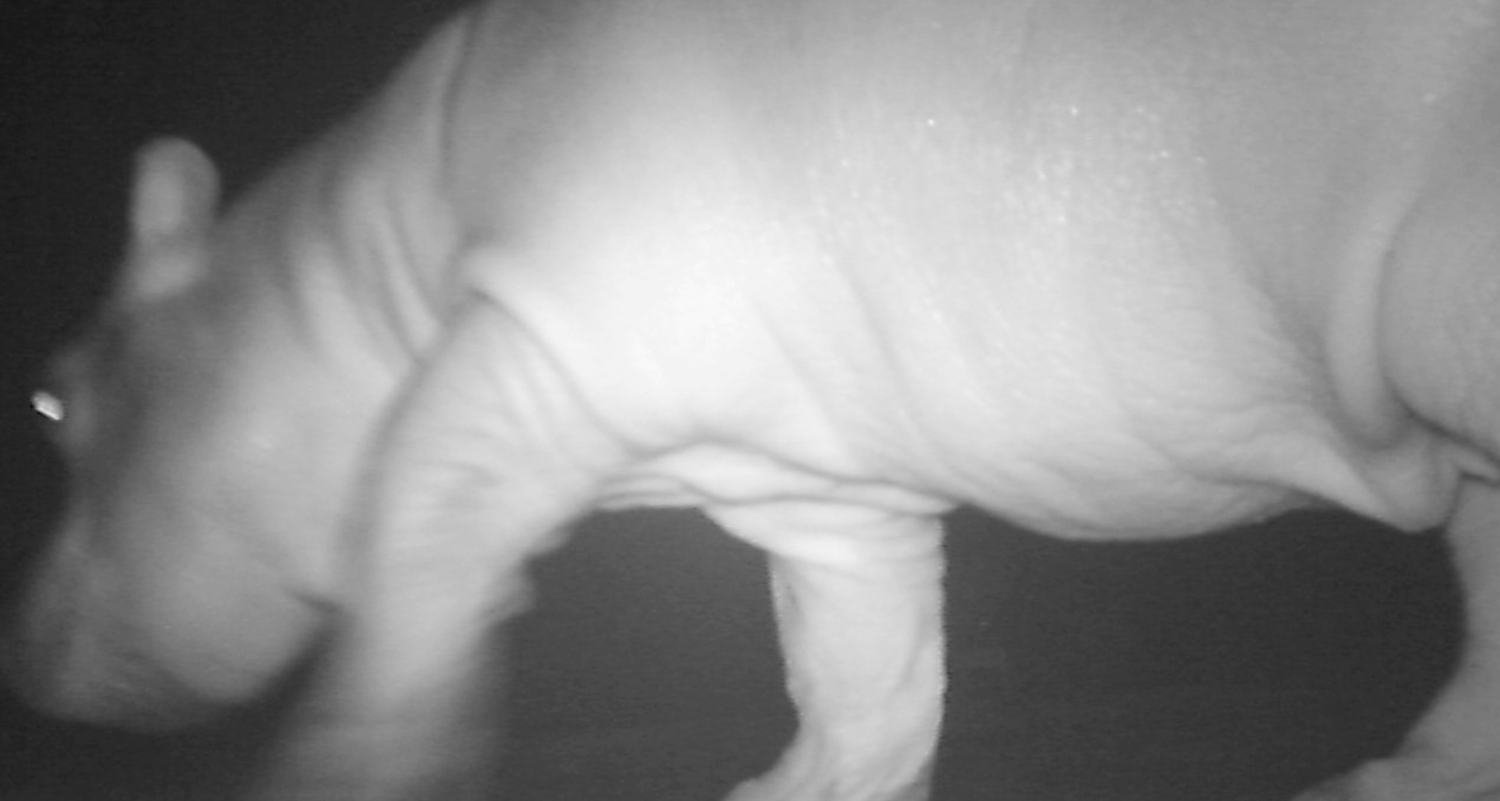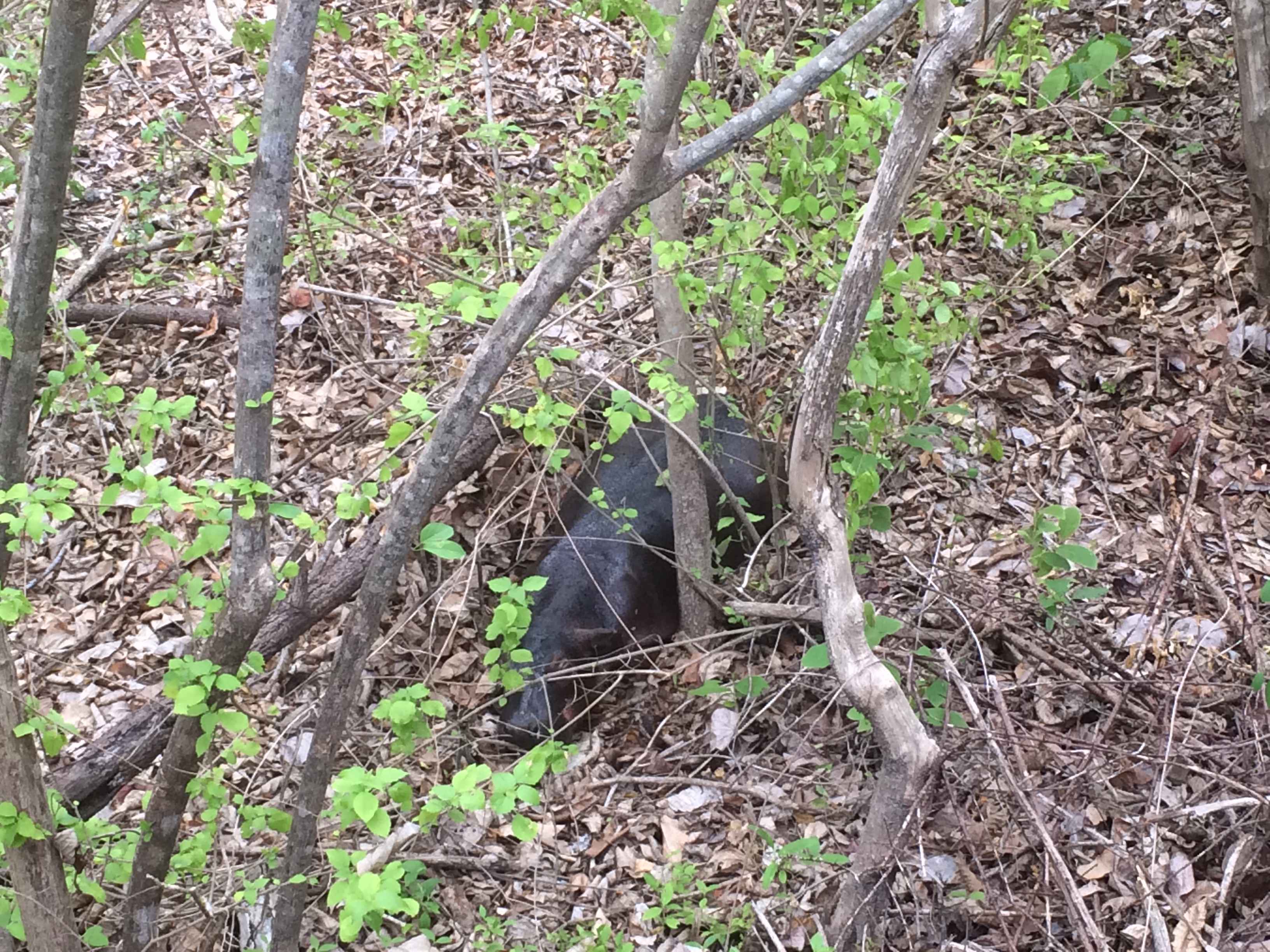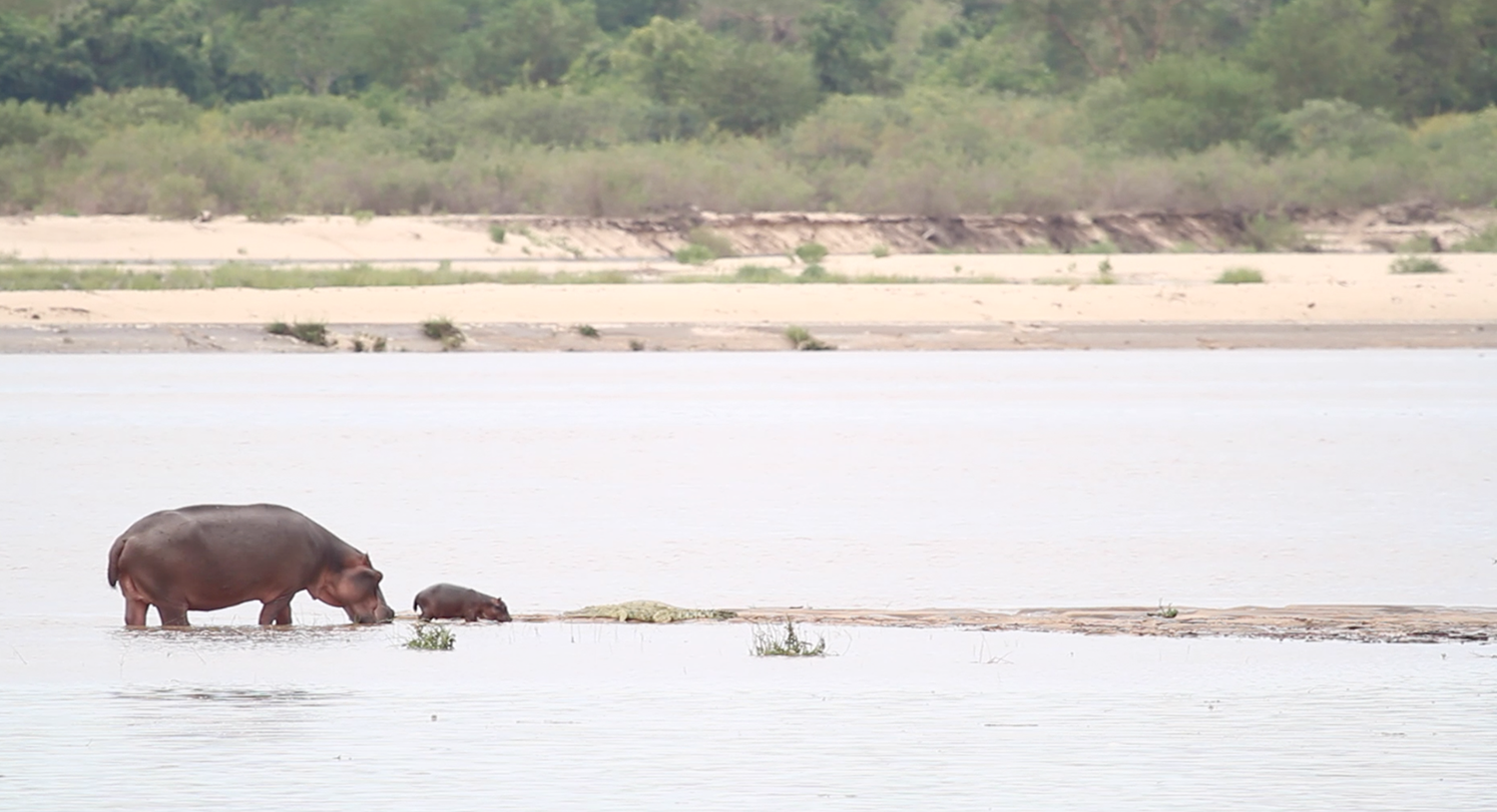About four days ago, we had one of the biggest thunderstorms of the season. Due to an extremely short "short rains" in November and December, the land was dry and the animals were struggling. There was no grass left and many animals were forced to eat plants they otherwise would not. This rain was a huge blessing for us all, and a long time coming. Rain barreled above us for over 4 hours, soaking the dry earth and allowing the ground to take a deep breath. As the rain eased up in the evening, we noticed the river rising. The rocks in front of the lodge were soon covered up, and sand banks opposite us were slowly disappearing. We knew this had been quite a wide spread storm.
As clients slowly came down to dinner, we got word from one of our waiters that there was a baby Hippo in the swimming pool. Almost in disbelief, we followed him to the pool, and sure enough, swimming in the shallow end was a baby Hippo. It was a very emotional moment for us to see that this baby had been separated from his mother - most likely due to the river flowing faster than normal. The baby didn't look injured in any way and wasn't skinny either, making us feel a little better about the situation. We knew that taking this baby out of the pool and returning it to the water that night would be a death sentence, as the adults were already on land and the chances of it reconnecting with its mother were almost zero. We decided to let the baby be and hoped that the mother would pass through the pool area at night and be reunited with the little one.
 (We found the pool empty the following morning, and the night camera we had placed there the night before, showed the baby leaving.)
(We found the pool empty the following morning, and the night camera we had placed there the night before, showed the baby leaving.)

We quickly started observing the 3 pods of Hippo that live close to the lodge and we asked our guides if they had remembered if any of the Hippo had such a young baby. Due to a number of factors, including the common paths Hippo take and feeding grounds within camp, we concluded it might have come from the pod opposite the lodge. The decision was made to relocate this young one to the sand bank next to the pod, and to see if it would be accepted back.
Once off the boat, we carried the baby to the edge of the sand bank, so we were close enough to the pod for them to see us. The baby took a few wobbly steps forward and let out a cry. One of the adults from the pod communicated back and the baby ran forward a few more meters and paused. A few adults from the pod called out again and the baby kept moving forward towards the noise. The baby went into the water and slowly swam towards the pod. All of our planning had led to this moment. The baby came close to a young male on the outside of the pod, and swam past without incident, a moment of relief for us all. The young one kept moving forward, nearing the center of the pod then ducked underwater.
Over the next few hours we kept watching the pod from the lodge, trying to find the baby. Every few minutes, a tiny head would pop out of the water for a breath and then duck back down. We noticed that that baby was spending more time with one adult and was staying very close at all times. Our minds started racing and we were so happy of the thought it had actually been re connected to its mother.
The following day, we raced down to the rivers edge to see if we could find the baby. The pod was in the exact same place it was the night before, and just to the side, we saw the baby with an adult. We were so relieved that it was alive and well.


The view we have of the pod from the terrace at the lodge, a great spot to keep a watchful eye.
We have named the baby Maisha, meaning "life" in Swahili as it overcame enormous odds to survive. We will keep you updated on this story over the weeks ahead.
